Working Toward a Healthier Peru
A team of 12 students spent part of their winter break in the Andean highlands of Peru’s Sacred Valley educating children and villagers about basic health care. Through Lafayette’s Alternative School Break, the group partnered with the nonprofit Sacred Valley Health/Ayni Wasi, which was cofounded by Emily Groves ’05 in 2012. Students stayed with host families in Ollantaytambo, a town shadowed by two hulking Incan ruins about two hours northeast of Cusco. They developed campaigns on the importance of teeth brushing, hand washing, and eating a balanced diet for the service part of their trip. They also explored Machu Picchu, shopped outdoor markets, and sampled Peruvian dishes.
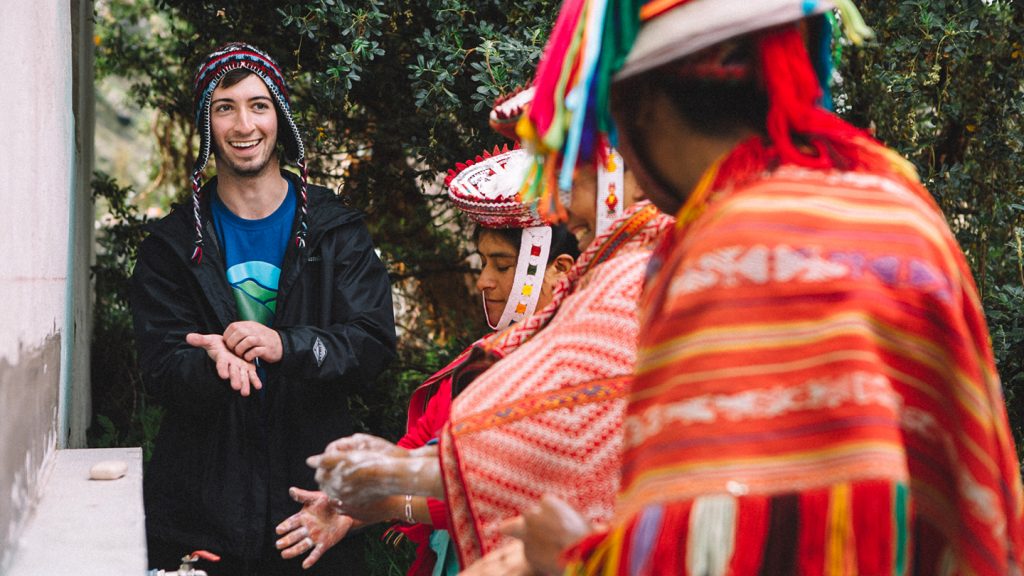
Emily Groves was at the Brookings Institution in Washington, D.C., working on high-level policy when she decided to take a year off and gain some hands-on experience helping people. She took an unpaid volunteer position in Peru with Awamaki, a nonprofit that helps rural Andean women start their own businesses through artisanal cooperatives. When Awamaki weavers started getting sick from preventable illnesses, Groves and three other volunteers decided to form a nonprofit devoted to health education, and Sacred Valley Health/Ayni Wasi was born. The organization trains indigenous Quechua-speaking women to become promotoras, frontline health workers in their villages, tasked with educating their respective communities about good health and disease prevention. Sacred Valley Health/Ayni Wasi currently works with 56 promotoras in 13 communities.
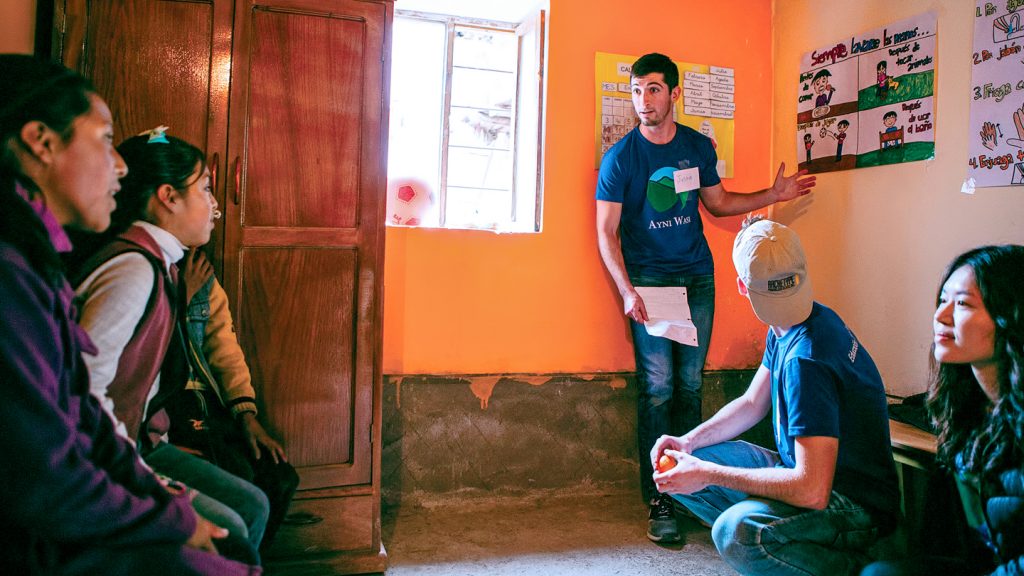
Students traveled two hours on winding mountain roads to the concrete and wood-framed Pallata Education Center, where about 20 children were attending a summer camp. “Let’s lay down some knowledge,” Dana Barry said as she exited the van, carrying a box of toothbrushes and toothpaste. Children greeted the Lafayette group with shy smiles. Justin Ungerleider ’19, Matt Curry ’19, Anita Chen ’19, and Claire Grunewald ’20 performed their skit about dangers of not washing one’s hands before eating. To demonstrate what could happen if you pet a stray dog and then eat an orange with dirty fingers, Ungerleider clutched his belly and pretended to retch. His act was a hit with the children, who giggled and jumped up and down.
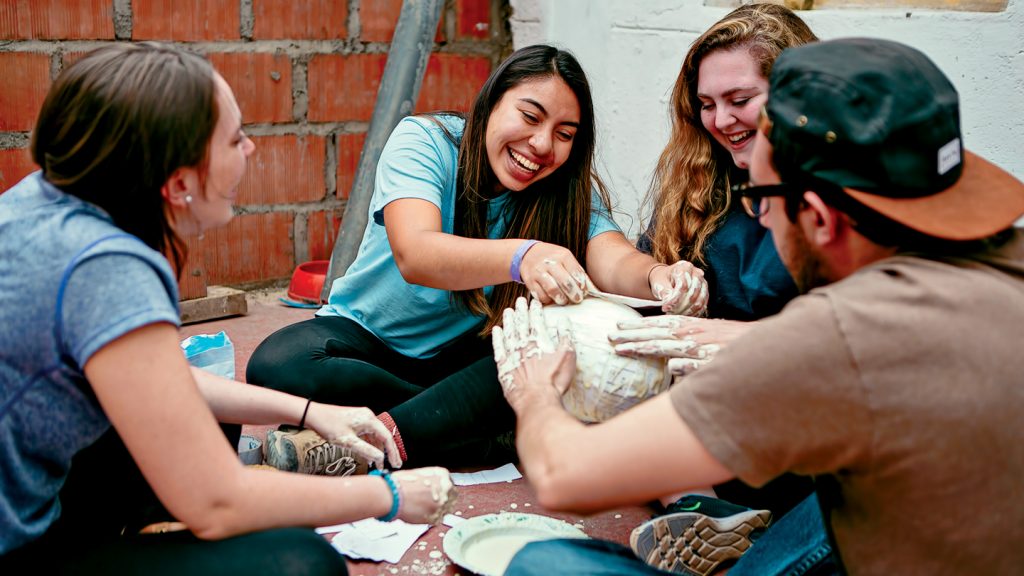
In the outdoor courtyard of the nonprofit’s Ollantaytambo office, Emma Horan ’18, Jasmin Vargas ’19, Dana Barry ’17, and Matthew Katz ’17 tackled dental hygiene, deciding to papier-mâché a balloon to look like a tooth. The idea was to cover it with dirt and then have the kids use a household scrub brush to clean it. But the flour and water mixture turned out too soupy, so the group scrambled to come up with Plan B.
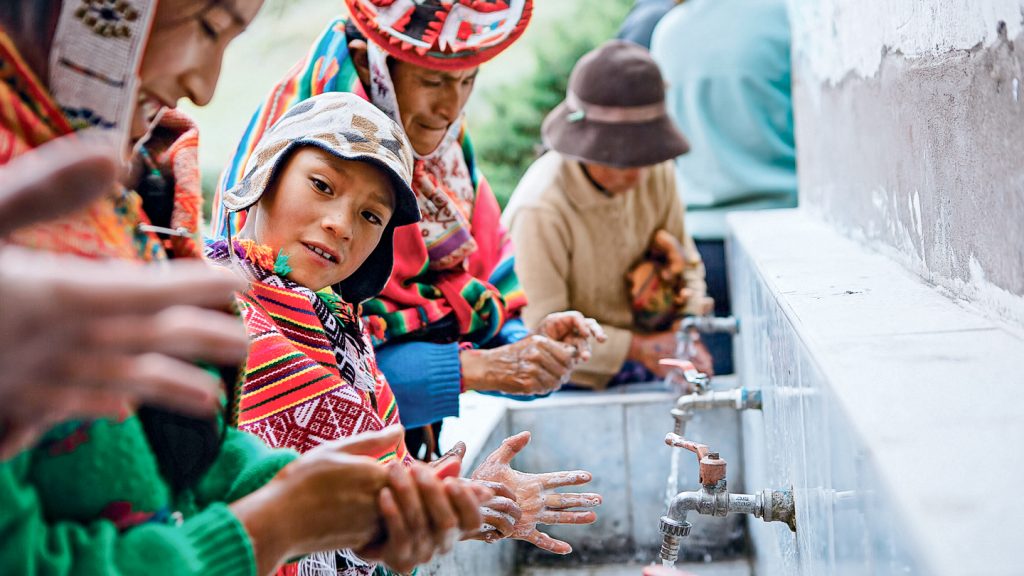
Students traveled two hours on winding mountain roads to the concrete and wood-framed Pallata Education Center, where about 20 children were attending a summer camp. “Let’s lay down some knowledge,” Dana Barry said as she exited the van, carrying a box of toothbrushes and toothpaste. Children greeted the Lafayette group with shy smiles. Justin Ungerleider ’19, Matt Curry ’19, Anita Chen ’19, and Claire Grunewald ’20 performed their skit about dangers of not washing one’s hands before eating. To demonstrate what could happen if you pet a stray dog and then eat an orange with dirty fingers, Ungerleider clutched his belly and pretended to retch. His act was a hit with the children, who giggled and jumped up and down.
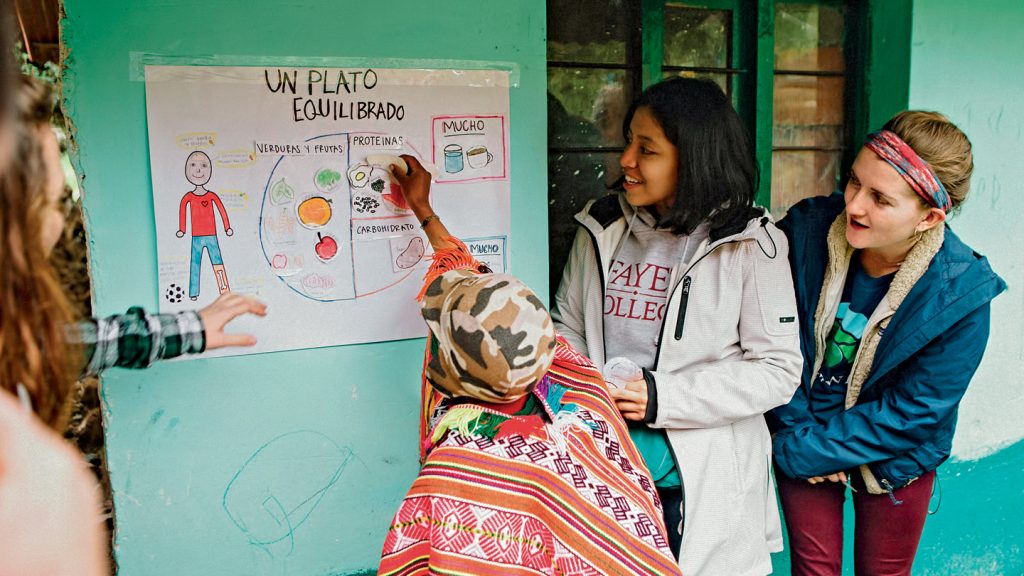
Angie Orellana ’20, Emily Saba ’19, Alex McMillan ’19, and Elaine Huang ’19 made learning about a balanced diet fun, creating a poster game where children placed pictures of different foods into appropriate nutritional categories. To demonstrate, Saba stuck a banana in the protein section. “That’s not right,” a girl in a purple coat said wagging her finger at Saba. “They really know their stuff,” said Orellana. McMillan agreed. “I don’t think I knew as much at their age as they do.”
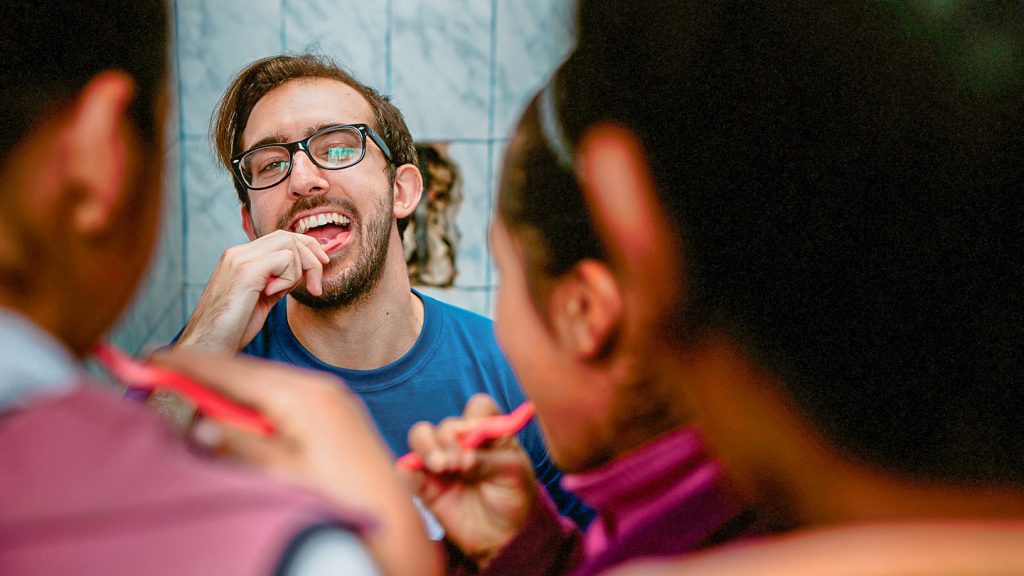
Matthew Katz took the lead on the teeth-brushing demonstration, giving his young audience an up-and-close look at how best to scrub one’s pearly whites. “It’s important not to eat the toothpaste,” warned Jasmin Vargas. This was the first time some of the children had ever brushed their teeth, and their gums bled. When it came time to spit, not everyone hit the sink. A few aimed for Katz’s lap.
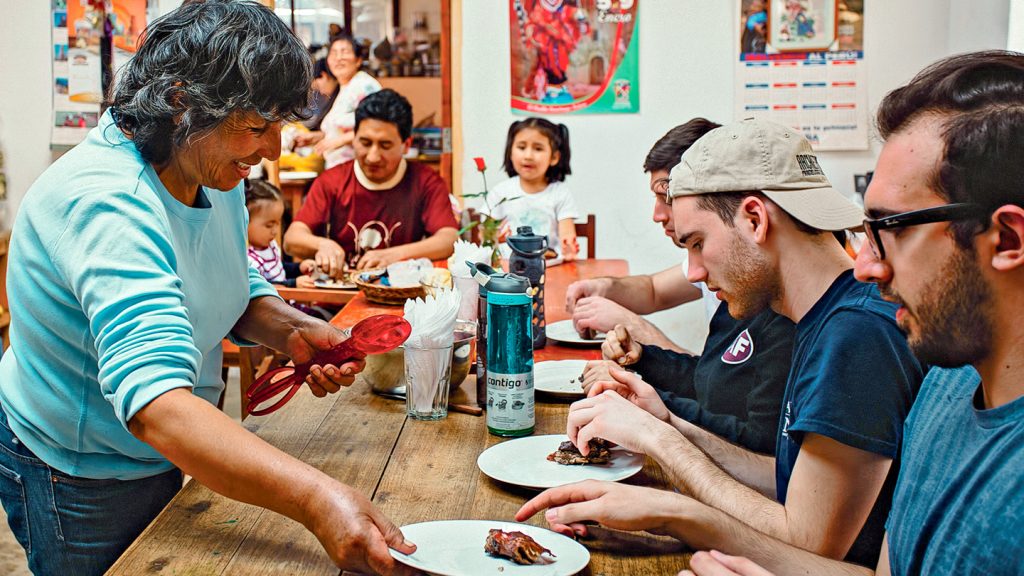
Host families provided most of the students’ meals during their seven-night trip, and some were treated to the Peruvian delicacy cuy (pronounced kwee) or guinea pig. The families doted on the students as if they were their own, even reminding them to wear jackets on chilly nights. “Everyone thinks we’re all different, but we’re much more similar than different,” said Matthew Katz. “If everyone realized that there would be a lot less problems.”
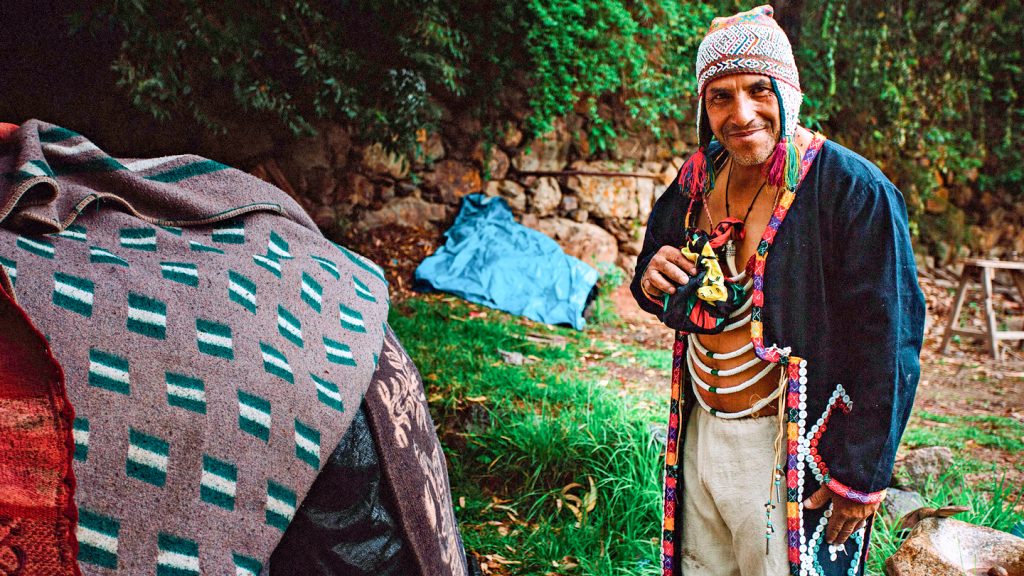
Students soaked up Andean culture by participating in a sweat lodge, an ancient tradition in Peru. During the ceremony, hot stones were transferred from a sacred fire outside the lodge to an interior pit, then doused with water to create steam. This happened four times, representing the basic elements of the universe: earth, fire, wind, and water. Heat inside the lodge was intense making it at times difficult to breathe. During reflections that night, Emily Saba said she never realized until that moment her dependence on water. “It gave me a new appreciation for the Earth and the way we need to treat it,” she said.
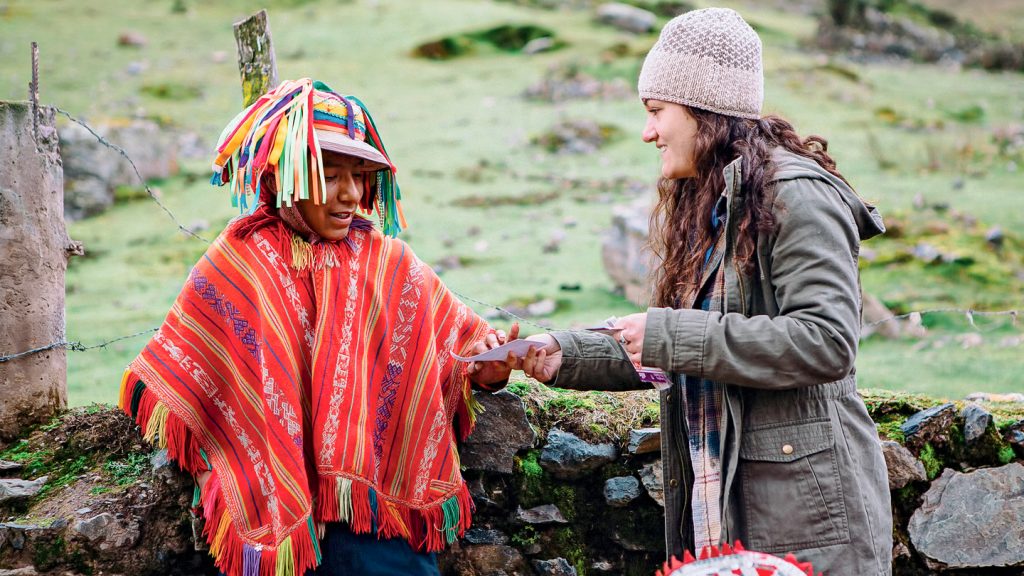
Sacred Valley Health recently secured a $25,000 grant to refocus curriculum on women’s health issues such as pregnancy and childbirth. One of the unanticipated consequences of the program has been the empowerment of promotoras, said Emily Groves. For the first time, they have control of their health and are receiving compensation for their work, in the form of rice, cans of milk, vegetables, and other food staples. “The women are really excited about their roles in the community and how they’re looked at as leaders,” she said, and not only in the realm of health care. Recently, a promotora was elected president of her village, a first for a woman.
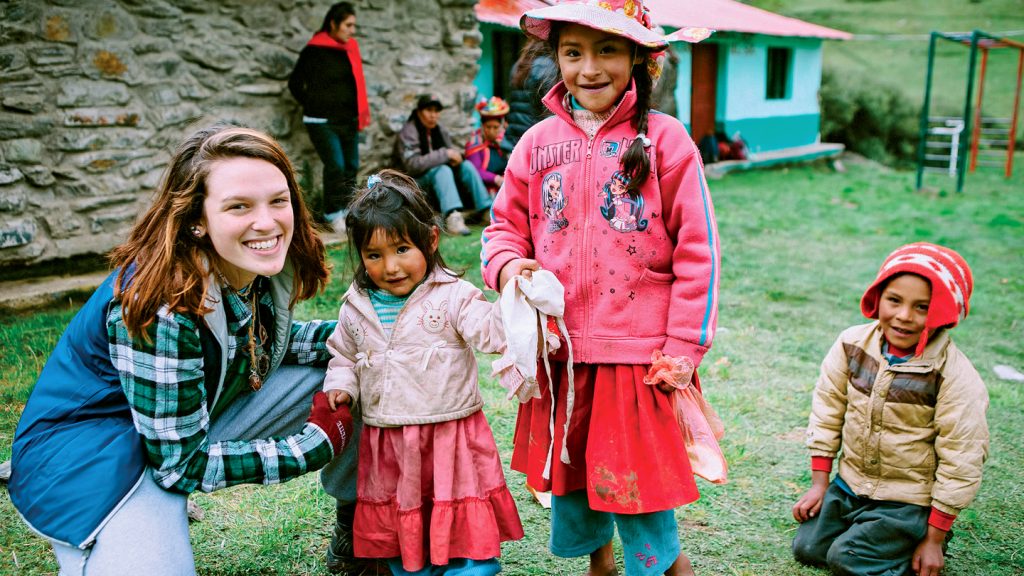
Students went to Peru to make a difference, but the biggest change occurred within themselves. They returned with a greater appreciation for the planet, the Peruvian people, and the privilege of giving back. They also learned to live without their cellphones and the internet. About 70 students participate in the five to seven service trips sponsored each year by Lafayette’s chapter of Alternate Spring Break.